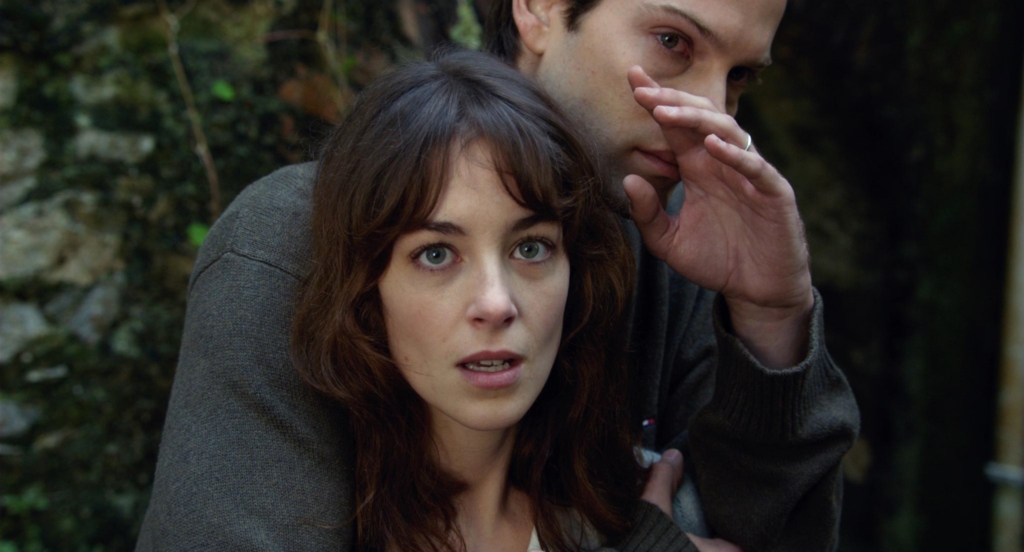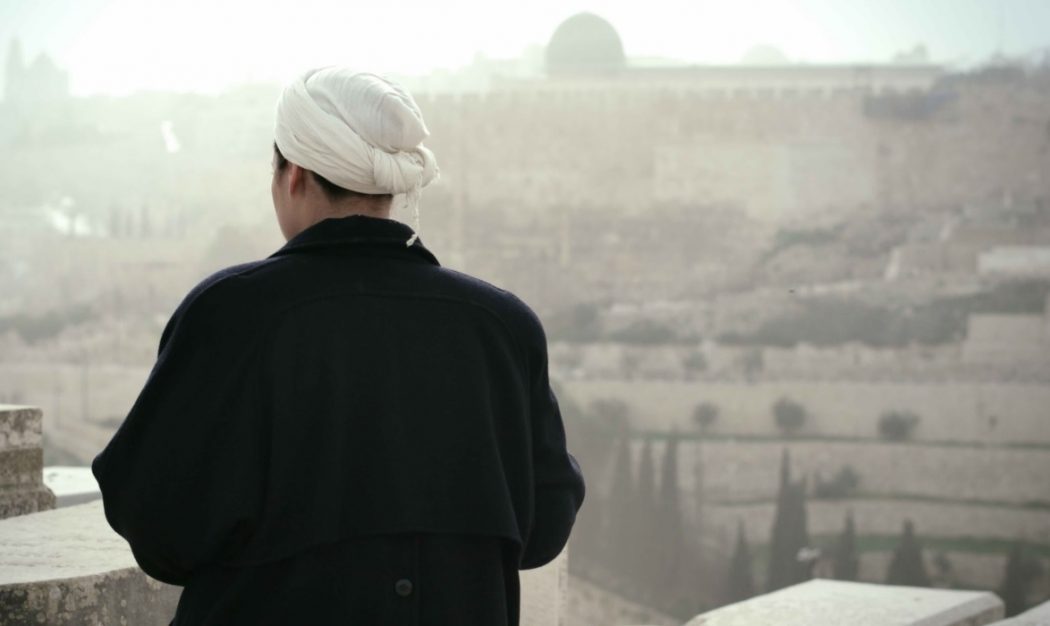Monday and Tuesday’s Sundance selections elicit polar opposite tones, reactions
With reduced availability during the weekdays, my two 8:30p choices were an interesting juxtaposition in the debut feature from an up-and-coming talent and the final feature from a revered auteur.
Mountain (Israel; dir. Yaelle Kayam)
Yaelle Kayam’s highly meditative and intriguing feature-length debut plays out much like the spiritual successor to other eloquent festival films of recent years – Ida (WFF 2014) and Félix and Meira (WFF 2015) – in their examination of Jewish identity from (but not necessarily in) the modern era. These films and Kayam’s Mountain are all part of a larger narrative about secular morals overwhelming the strict confines of faith with specific regard to women. The angle here is most individualistic and feminist of the three with eventual caustic suggestions of Orthodox Judaism, ironically, as a kind of numbing and passively oppressive cult. For Tzvia (Shani Klein), a young mother of four, spiritual yearning isn’t met by religious duty and daily chores for her devout scholar husband Reuven (Avshalom Polak) but rather some other form of creative expression and the inborn desire for the meaning of love and lust as an adult woman. Her quiet struggles with loneliness and purpose initially manifest in socially acceptable behaviors like smoking cigarettes and conversing with the Muslim grave-digger, Abed, at Mount of Olives’ cemetery.
But one night, in the sloped architectural marvel that is the Jerusalem burial ground, she looks down upon a couple having sex on one of the graves; her instant horror turns to voyeuristic curiosity, sympathy, and an imprecise sense that she is fulfilling a need for a community separate from faith even if it’s with a group of pimps, prostitutes, and drug dealers. As Tzvia returns time and again with pots of stew to feed the debauchees in the dead of night and stands silent in their company, the film makes deliberate efforts to align her duality and inner conflict with circadian rhythms, alternating between scenes in bright natural light and enveloping darkness. While there is potential peril in Tzvia’s encounters with the shadowy figures among the gravestones, Kayam affixes a nonjudgmental lens and beautiful touches of suspenseful ambiguity to each situation that become progressively fascinating. The most poignant comes in daytime, as a South Korean man honors a famous Israeli poet named Zelda at her burial site. Through the discovery of Zelda’s revelatory writing and wisdom about life, Tzvia finds a means to articulate what she’s been previously unable to express verbally or physically in hymn or prayer.

Cosmos (France, Portgual; dir. Andrzej Żuławski)
In assessing the conundrums in the Andrzej Żuławski’s adaptation of the source text by Polish prize-winner Witold Gombrowicz, the antithesis of anything Carl Sagan has attached his name to, the first question may be: why is this in French? Is it because the late Żuławski sensed the presence of the early French surrealists in the absurdity of the narrative’s compounding chaos of signifiers? Or is it just an arbitrary distinction made due to production convenience, mirroring the plight of the increasingly manic main character who shares a name with the original author? The levelheaded viewer is likely to walk out of the disorderly, ironically titled Cosmos with a myriad of frustrations. Then again, no one ever claimed the film operated by logic outside the influence of psychotropics. The will to engage with the film is persistently elusive; what is a personal and often hilarious literary experience, punctuated by painstaking lists and ellipses, simply cannot be translated verbatim to the rhythms of cinema time. And the stilted oddity of watching live actors perform for this heightened reality lends a discomforting mood one might associate with any of David Cronenberg’s recent adaptations, particularly Cosmopolis, based on the book by Don DeLillo. (It must be their congruous titles that attempt to encapsulate the universe.)
If Cosmos intends to be a commentary on the maddening process of writing, human desire, and our penchant for assigning meanings to insignificant events, there are at least a few amusing scenes that spatially translate. The two principal misfits, criminal law-flunkie Witold (Jonathan Genet) and his companion, ex-fashion designer Fuchs (Johan Libéreau), pursue a visual trail of triangular “clues” from the handle of an axe, to the maid Catherette (Clémentine Pons)’s room, back to pebbles/blades of grass. In fits of restlessness, Witold relates all this to Catherette’s deformed harelip to daughter Lena (Victória Guerra)’s red kissable lips, to an arrow in the corner of an upstairs room, to a dead hanging sparrow that greeted him upon his arrival at this grandiose Portuguese haven. Where The Apostate failed to evoke a sense of doom for its protagonist, at least an apocalyptic ineffability, an abstract savagery protrudes from the frame here. The abnormal turns of events seem to be led by Léon (Jean-François Balmer), master of the estate, who prattles on endlessly in his own stuttering fantasy language that threatens to collapse into a series of monosyllabic vowel sounds. Ultimately, Żuławski mistakes the littering of his film with spoken references to cinema for the same thing as being cinematic; and that virtue remains stuck somewhere in his utilization of Schoenberg’s “Transfigured Night.”

